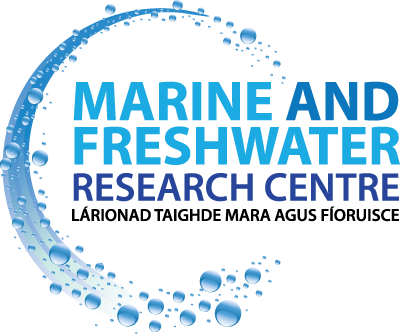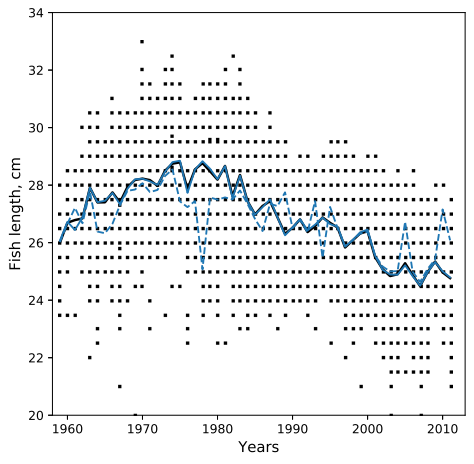The effects of environmental change and fishing activity on herring populations in the Celtic sea and the Northwest coast of Ireland are looked at in a new paper in the journal Ecological Informatics from MFRC and Marine Institute researchers.
This study used Gradient boosting regression trees to identify trends in extended time series (1959–2012) of length-at-age across both populations and to investigate important variables associated with the observed declines in size. The predominant signal detected was a non-linear negative relationship between adult size and mean Sea Surface Temperature during the first growing season. Herring length was negatively correlated with the Atlantic Multidecadal Oscillation. Food availability and population size showed weaker associations. A marked decline in length was observed at the upper end of the temperature range (~14∘C in the Celtic Sea and ~13∘C in the Northwest). Declines in length and associations with temperature were more pronounced in the Celtic Sea population which may be vulnerable to increasing sea temperatures due to its position at the southern limit of the species distribution.
This research was supported by a grant from the Irish Environmental Protection Agency (Ecosystem tipping points: learning from the past to manage for the future, project code 2015-NC-MS-3) and a PhD scholarship under the Sea Change strategy supported by the Marine Institute and the Marine Research Sub-Program of the National Development Plan 2007–2013 (Grant-Aid Agreement: PhD/FS/07/007 (01))
Read more about the Ecosystem tipping project here



